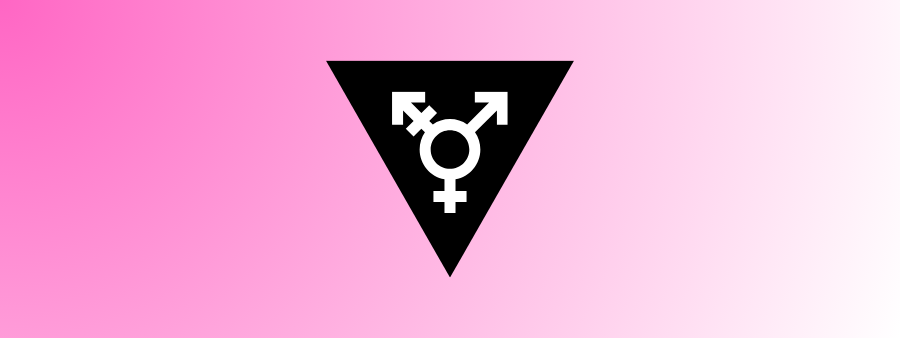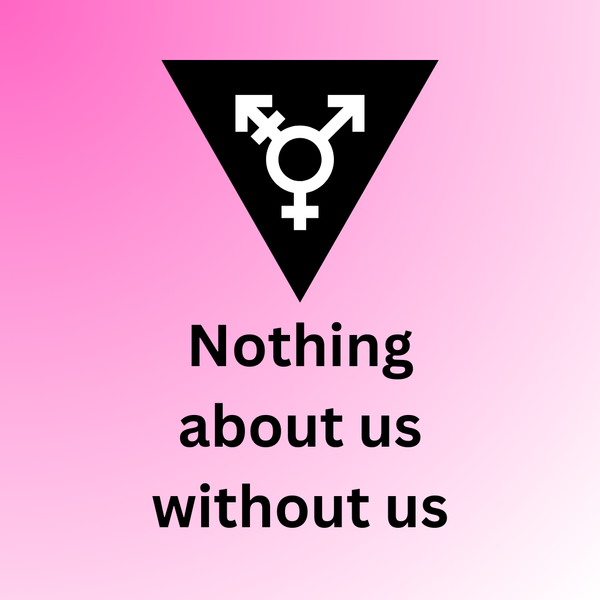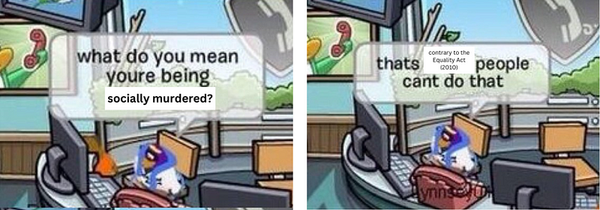What is a woman and when can she speak?
How an anti-trans dogwhistle became a misogynistic silencing tactic.
Note: Much of this article was written in July 2024 and sat in my drafts folder unfinished until now, I decided to finish it because, despite the examples being a little out of date, I feel the point is still worth making
A study published in the run up to the last UK general election raised an issue a lot of trans people who care about feminism will have noticed years ago; the obsessive focus on trans issues as the women’s issue is squeezing out any public conversation about issues like violence against women and girls (VAWG) or childcare provision. This can be seen in coverage like the BBC’s article, “What are the parties saying about women’s rights and gender identity?”, which has a lot to say about whether trans women are allowed to use women’s spaces but nothing at all about, for example, the appalling state of NHS maternity care, an actual issue of women’s health and wellbeing (and the safeguarding of children, for that matter) that seems not to have figured much in national news coverage about the election.
Outside of election season, we can see this dynamic play out on social media. Trainspotting author Irvine Welsh, for example, recently felt the need to respond to a post by Labour politician Harriet Harman talking about a cross party group addressing issues like VAWG and equal pay by asking “Have you decided what a woman is yet?” As an anarchist, I’m pretty skeptical of the ability of a caucus of MPs to do much to really help most women, but on the other hand, as a feminist I can’t help but resent the supposition that before any woman may speak on matters of endemic violence against women, she must first gain the approval of a man who wrote a famous book 22 years ago by demonstrating she doesn’t include trans women in the group she says must be protected from violence.
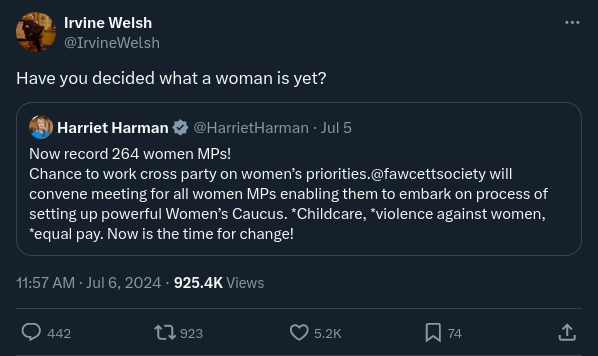
Welsh is far from the only gender critical man who seems to think that his transphobia should take priority over discussions of quite serious issues of misogyny. Former comedy writer and current full time professional transphobe Graham Linehan, for instance, was quite affronted that the cis woman broadcaster and vocal trans ally Louise McSharry might have thoughts about VAWG despite having, horror of horrors, her prounouns listed in her social media bio.
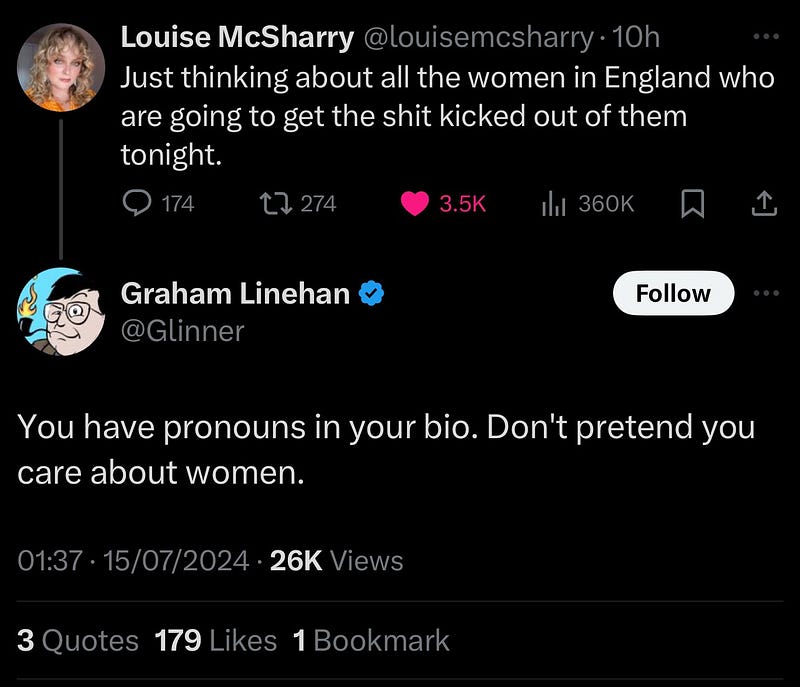
The function of this tactic is most clear in its application across the pond, where women raising issues of threats to women’s rights from Trump/Vance can find themselves pretty quickly bombarded with dozens of demands to define the word “woman” from accounts that mostly seem to be run by men.
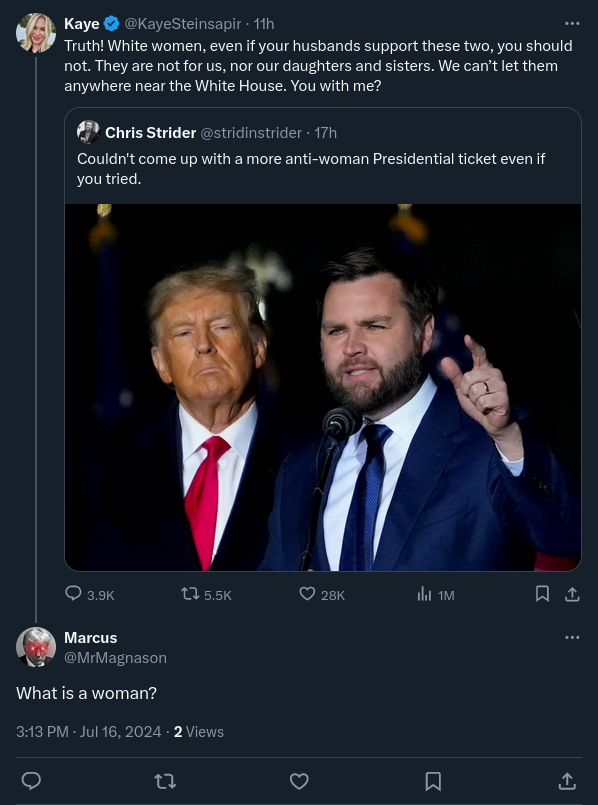
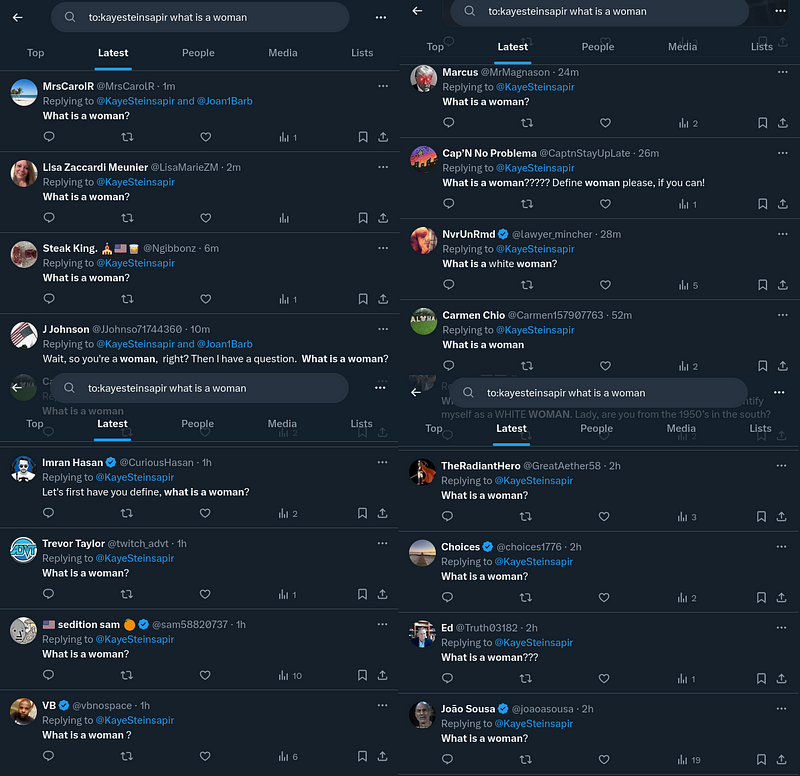
The anti-trans backlash has been a gift to misogynistic men. Women are, on average, more positive about trans people and trans rights than men, with women more likely than men to take pro-trans sides of most relevant issues. A recent survey by YouGov of people aged 18-27 [PDF] found that a majority of young women support trans women's inclusion in single sex spaces like toilets and hospital wards, with 70% of young women (compared with 53% of young men) supporting the right of trans youth to socially transition. From personal experience, this is especially true of progressive and feminist women and many feminists have been outspoken on the political dead end that is defining womanhood and the centrality of "contesting received ideas of what a woman is" to feminism. For a misogynistic man, "what is a woman?" is absolutely a transmisogynistic dog whistle but, as a special bonus, it's also something to snarl at cis feminists (especially young women) who are getting a bit too vocal for his tastes about their own rights and humanity.
When a man snarls "What is a woman?" at a woman speaking on feminist issues, he grants himself the epistemic authority to define what women are, he appoints himself a patrolman at the borders of acceptable womanhood, he shouts down women speaking while claiming to speak for women. We need to call this out for the misogyny that it is. Whether or not we think "What is a woman?" is a worthwhile question to ask, I'd much rather hear from Louise McSharry about it than Graham Linehan or Irvine Welsh.
I’ve spent years of my career writing and talking about equality and women’s rights and now these TOTAL PRICKS accuse me of ‘trying to impress men’ because I support trans rights. It is so utterly galling.
— Louise McSharry (@louisemcsharry) September 14, 2023
